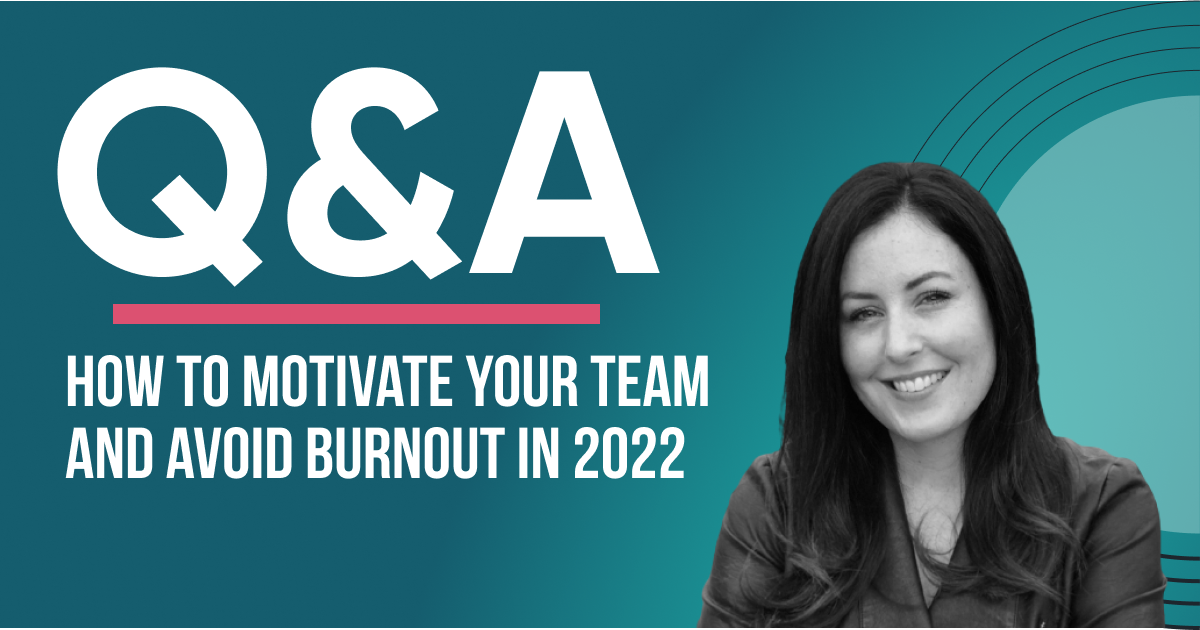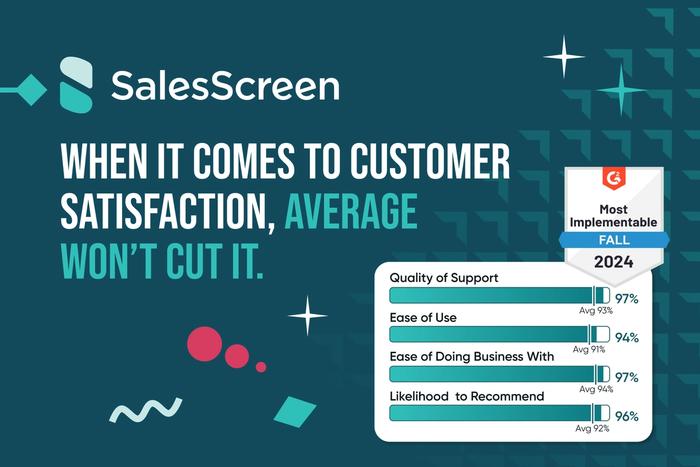Sarah Sheehan is President of Bravely, an executive coaching company that helps managers across a wide variety of industries solve thorny issues at work, develop their management skills and chart their way forward. But before Bravely, she was the manager of a large, multi-regional sales team who tackled all the usual sales floor challenges—including managing her team in a way that prevents burnout.
We asked Sarah how sales managers are faring after a difficult two years, how organizations can help them help their teams, and how they can motivate their sales teams to hit goals while maintaining their mental health.
The conversation below has been edited for clarity and length.
You coach a wide variety of leaders and aspiring leaders. Have you seen an uptick in burnout among managers themselves?
During the last two years, we measured a 700% increase in coaching sessions about stress and burnout. As managers, we're often tasked with doing things as individual contributors and then helping our teams figure out that path forward. And it's rewarding, but it's not without its challenges. When you layer on [your employees’] stress and burnout and then solve for that, then it becomes particularly stressful for that manager because they have a lot of feelings of this being unmanageable themselves.
What has been particularly tough for sales managers?
Most of the problem solving [over the past two years] fell on the shoulders of managers. They had to continue to drive performance while also helping people figure out how to get their needs met and it introduced a lot of complexity, especially around things like equity. What you do for one, do you have to do it for all? That's one of the biggest pressures that managers have faced.
And that is not really the manager's problem. That is a policy that has to be set.
So managers have been burdened with solving organizational problems?
I think so. Companies have to enable their managers to make their decisions based on a set of criteria. So it's setting the guardrails and enabling the manager to work within a set of criteria that you've already given them. But then also giving them the flexibility to say, I can do more or less based on the agency that you've given me.
We had a lot of employees in New York who were getting COVID. One of the things that I did immediately was to set up a checklist of what to do if someone on your team has COVID: whether they're symptomatic or not, tell them to take time off because psychologically it’s a burden. Make sure that you understand everything that needs to be covered. Send them a gift card. Check in with them on a daily basis. And if there are other things that you need to do, you have permission.
Do you have a similar checklist for when employees are burned out?
Not in the same way. When it comes to burnout, we do a lot of communication about the signs of burnout. If someone is no longer performing at the level that they used to, there’s this idea that they're just not a performer anymore. That’s not the conclusion that we should immediately jump to.
I think there's a little bit of a mindset shift that has to take place right now around assessing burnout and our responsibility in helping address it.
What was your management style before the pandemic?
I was pretty open. I think there was the feeling that people could share whatever was happening with Sarah—and it wasn’t about me or our company culture—but across the board, it just wasn’t accepted in the workplace at large. It was a macro issue, and leaders who decided to break down those barriers made more progress.
And now? Do managers have to recalibrate their leadership style to meet new expectations?
I have hosted a lot of conversations about vulnerable leadership over the last two years. I finally took the mask off myself during covid-related lockdown because I had no childcare and had to hold my baby on every call. I had to be very open about how challenging this moment was for me. I think by doing that, I allowed everyone else on my team to then be open to sharing their personal challenges with me. So when another mom on my team came back from leave she was way more willing to tell me the truth about her own struggles because of that mindset shift of “I'm going to lead vulnerably. I'm going to be real with everyone.”
Are there any management styles that are going to be less successful going forward?
I think that sales, in particular, can easily, easily lend itself to the micromanagement approach. You know, you have to know every minute of every day, “Where are we? How are we tracking?” That just won't work ever again.
And what will work?
Individualized support.
I used to be a sales manager. I had a big sales team in New York, but then I had six other markets. What I realized then is that every single person was motivated by something different. And I tried to train the team managers on how to zero in on an individual's needs. One person cared about money. The other person cared about recognition. Everyone has something different that drives them. The most effective leaders are the ones who look at people as individuals, not managers who use a blanket approach.
In 2020, sales managers worried that remote teams wouldn’t benefit from the energy of the sales floor. Is it harder to motivate remote sales teams?
It's definitely harder. And I don't think anyone's figured it out honestly. But the feedback is that people wanna be home.
I think the key is to focus on outcomes— enable your sales team, give them the tools to say, “Hey, we hypothesize that if you do X, Y, and Z, this will produce great results.” But if someone has figured out a way to produce great results doing things their way, you shouldn't care how many emails they sent or how many phone calls they made.
And that's the whole rub with remote work. None of us thought we could do it because we thought we needed to see someone arrive at a certain time and we needed to watch them click the keys for eight hours and, and all that's just a total and complete mirage. It's a story that we've told ourselves. If someone's hitting their numbers, do we care how they get there as long as it's ethical?
What role does coaching play in preventing burnout?
It plays a huge role, as long as the sales manager doing the coaching doesn't ignore what's causing the burnout. Giving someone the big “rah, rah, you can do this” without helping them remove blockers is a complete waste of time. They should be asking themselves: are we setting crazy expectations or communicating poorly? What is within my power as a manager to change in order to enable and support my team?
How does that help prevent burnout?
When someone is doing the same thing over and over again, and it's not yielding results, that can lead to frustration. It's our job as sales managers to dive in and know what's happening. And that's where the process comes into place. Because we can walk through and understand where someone might not be connecting the dots.
Some companies will go back to the office. What advice can you give managers who want to help their team transition back while looking out for burnout?
The manager now has to serve a different role. They're not just driving performance and making decisions. They’re also serving as somebody who has a heart. They're now expected to show up and lead with compassion and build connections. I think companies are going to start looking for that as a quality: high EQ, somebody that's able to build cultures of belonging and support. It will be challenging for people to come back and know how to make those connections again. And the person that's going to be responsible for emulating that is the manager.











